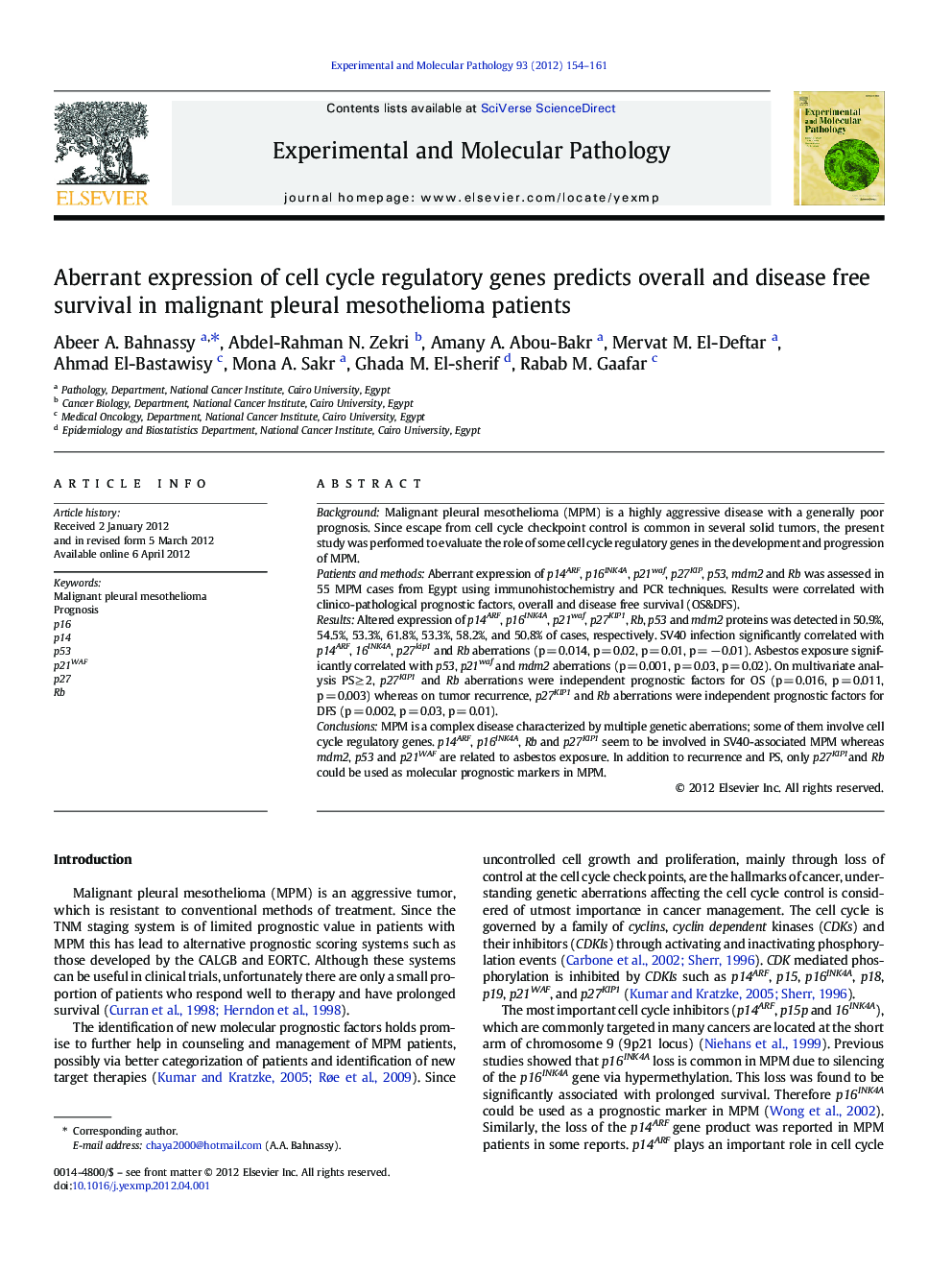| Article ID | Journal | Published Year | Pages | File Type |
|---|---|---|---|---|
| 2775408 | Experimental and Molecular Pathology | 2012 | 8 Pages |
BackgroundMalignant pleural mesothelioma (MPM) is a highly aggressive disease with a generally poor prognosis. Since escape from cell cycle checkpoint control is common in several solid tumors, the present study was performed to evaluate the role of some cell cycle regulatory genes in the development and progression of MPM.Patients and methodsAberrant expression of p14ARF, p16INK4A, p21waf, p27KIP, p53, mdm2 and Rb was assessed in 55 MPM cases from Egypt using immunohistochemistry and PCR techniques. Results were correlated with clinico-pathological prognostic factors, overall and disease free survival (OS&DFS).ResultsAltered expression of p14ARF, p16INK4A, p21waf, p27KIP1, Rb, p53 and mdm2 proteins was detected in 50.9%, 54.5%, 53.3%, 61.8%, 53.3%, 58.2%, and 50.8% of cases, respectively. SV40 infection significantly correlated with p14ARF, 16INK4A, p27kip1 and Rb aberrations (p = 0.014, p = 0.02, p = 0.01, p = − 0.01). Asbestos exposure significantly correlated with p53, p21waf and mdm2 aberrations (p = 0.001, p = 0.03, p = 0.02). On multivariate analysis PS ≥ 2, p27KIP1 and Rb aberrations were independent prognostic factors for OS (p = 0.016, p = 0.011, p = 0.003) whereas on tumor recurrence, p27KIP1 and Rb aberrations were independent prognostic factors for DFS (p = 0.002, p = 0.03, p = 0.01).ConclusionsMPM is a complex disease characterized by multiple genetic aberrations; some of them involve cell cycle regulatory genes. p14ARF, p16INK4A, Rb and p27KIP1 seem to be involved in SV40-associated MPM whereas mdm2, p53 and p21WAF are related to asbestos exposure. In addition to recurrence and PS, only p27KIP1and Rb could be used as molecular prognostic markers in MPM.
